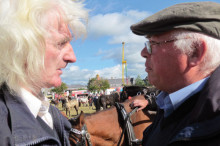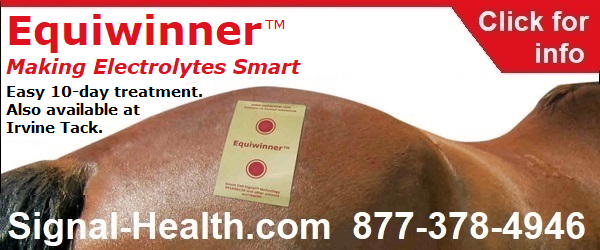
Ballinasloe sits on the banks of the River Suck, a tributary of the Shannon, on County Galway’s eastern side. Its history goes back to ancient times and because of its strategic location on the river, the clansmen of local tribes would meet there at “The Gathering of the Hostings.”
Today, quaint and scenic Ballinasloe is a town with colourful store fronts, welcoming pubs featuring traditional Irish music, verdant city parks, churches with soaring steeples and warm and friendly townspeople. Ballinasloe is also home to one of Europe’s oldest fairs, the annual Ballinasloe Fair & Festival. Rich in history and tradition, the fair had its beginnings in the 1700s when it was mostly an agricultural sale of sheep and cattle. In the early 1900s it evolved into a fair that sold only horses. There’s a saying about the Ballinasloe Fair, “If you’re looking for a horse, pony or donkey and if you can’t find it at Ballinasloe, there isn’t one bred.”

The sale of horses takes place on the last weekend of September and the first Saturday of October along with equestrian events such as lunging competitions and mare and foal halter classes. Family entertainment over the 10-day fair includes pig races, dog shows, fireworks, tug-o-war, a food and craft fair and singing competitions in local pubs.
The horse sale on the first Saturday of October is billed as “Country Fair Day” and it is when many local rural residents attend. It also attracts “travellers” and veteran horse traders from other counties in Ireland. One veteran trader, Miley Cash, fromCountry Kildare, is a fourth generation horse trader who has been buying and selling horses for over 55 years.
 A point of interest: Miley is related to the late singer, Johnny Cash. I joined Mr. Cash in his pony cart at the Ballinasloe Fair Green as he scanned the grounds for prospects. It turned out the prospects came to him. Cash is widely known in the horse trading business in Ireland, and those with horses for sale knew he was there to buy. To appraise the horse before a purchase, Cash watched the animal trot a few metres, asked the seller some strategic questions and had a look at the horse’s teeth.
A point of interest: Miley is related to the late singer, Johnny Cash. I joined Mr. Cash in his pony cart at the Ballinasloe Fair Green as he scanned the grounds for prospects. It turned out the prospects came to him. Cash is widely known in the horse trading business in Ireland, and those with horses for sale knew he was there to buy. To appraise the horse before a purchase, Cash watched the animal trot a few metres, asked the seller some strategic questions and had a look at the horse’s teeth.
It took only minutes for Cash to decide to purchase and once he did, the process associated with sealing the deal was intriguing to observe. Nothing like some good old-fashioned haggling to start with, then a slap of the buyer’s and seller’s hands indicated an agreement had been reached. Payment was in cold, hard cash. No cheques, no visa and no tax for the taxman. A red half-circle drawn on the horse’s hind quarter completed the transaction. Cash was looking mostly for Connemara ponies, Irish Cobs and some Irish hunters for clients in Belgium, France and Holland.
Ireland’s economic downturn has created a buyer’s market for horses. And for someone like Mr. Cash, who has an experienced eye, money in his pocket and international buyers wanting his handpicked, quality horses, he is indeed in a favourable position.
For information about travel to Ireland go to: www.discoverireland.ie or www.irishtourism.com; Irish Tourism Board Canada, 111 Avenue Road, Suite 450, Toronto, Ontario M5R 3J8, Tel: 416/961-2175
Photos by Elaine Kenney.

